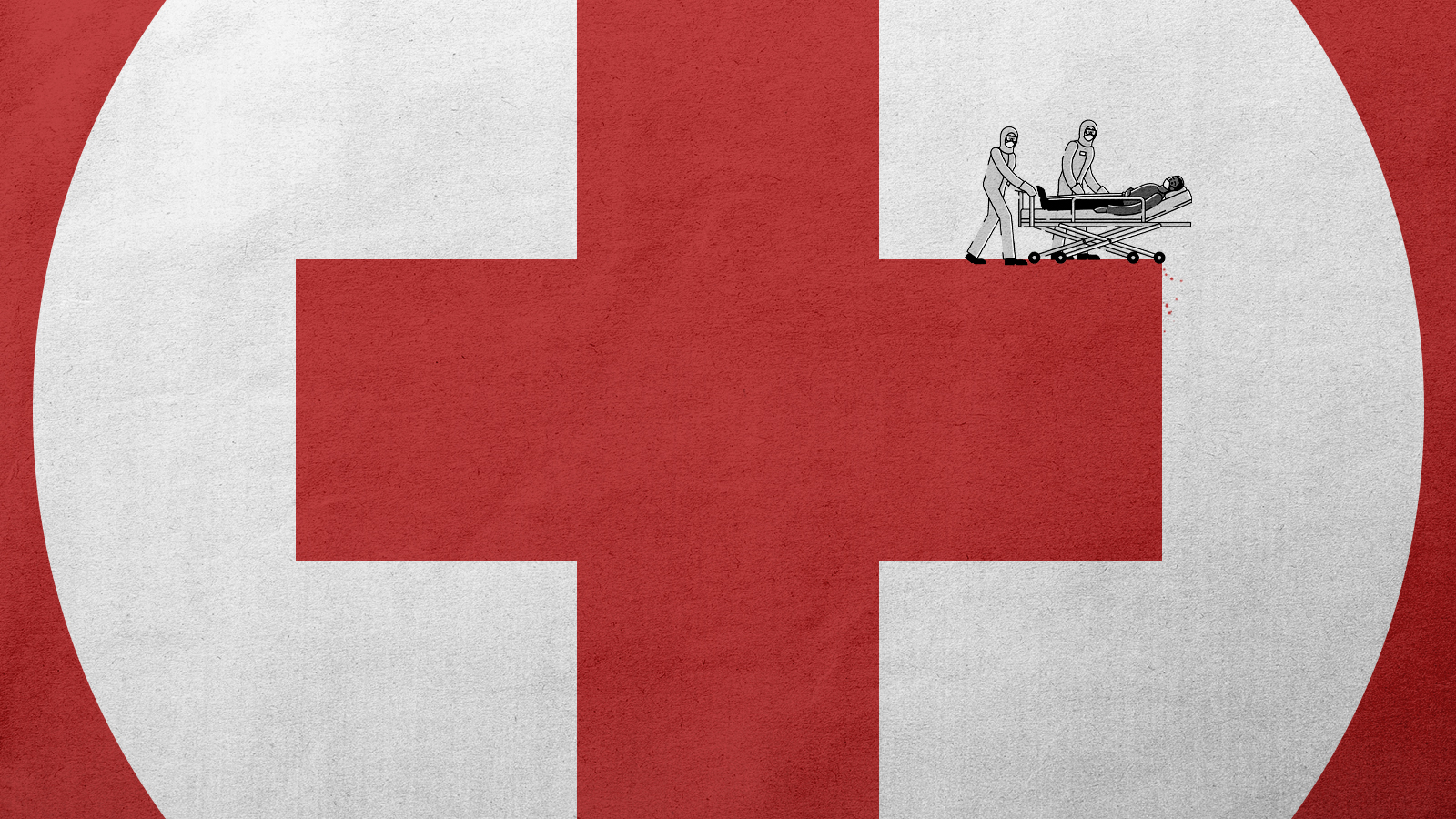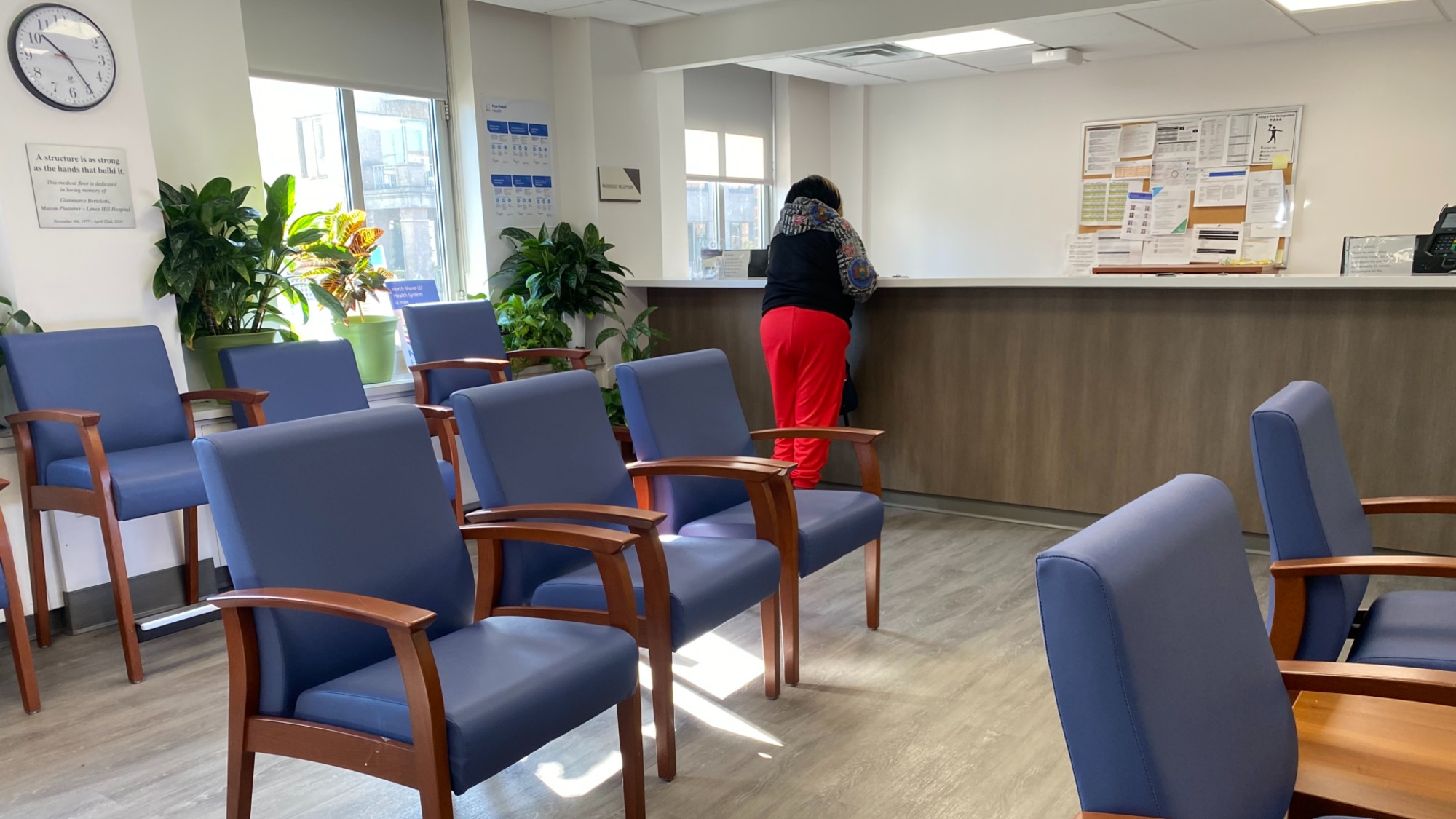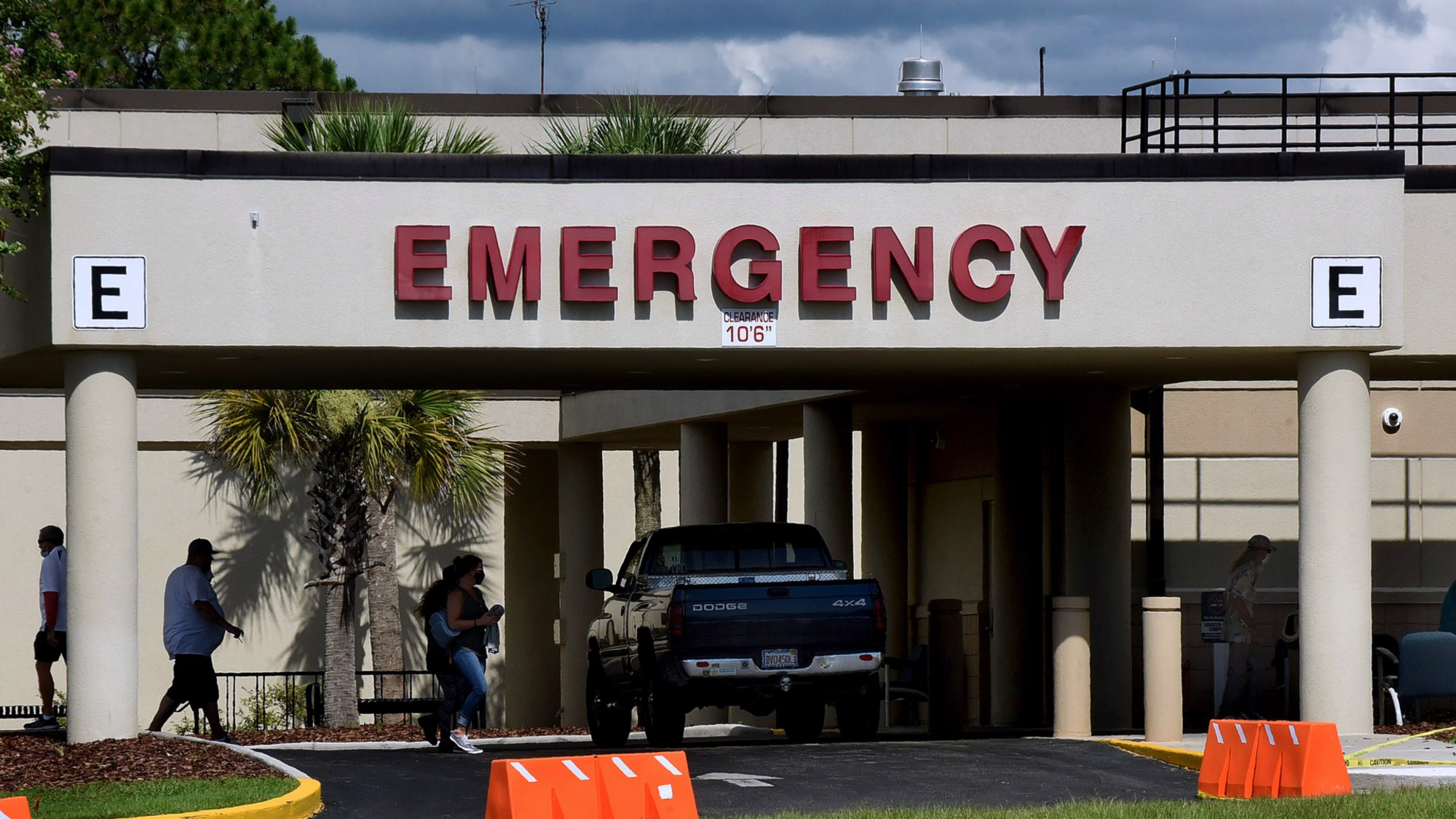The broken American health-care system is prolonging the pandemic
Americans are taught to fear going to the doctor. Turns out this makes them less likely to get vaccinated too.


A free daily email with the biggest news stories of the day – and the best features from TheWeek.com
You are now subscribed
Your newsletter sign-up was successful
For a few months, the United States was in the shocking position of beating Europe at a public health effort. America secured massive supplies of the coronavirus vaccines from the start, while the janky European Union bureaucracy was far behind — and so, for awhile, we were way ahead at getting shots into arms.
But now the U.S. is back where it belongs: being humiliated by European welfare states. Nearly all the richest nations in the E.U. have since passed up America at vaccination, and soon so will Finland, the Czech Republic, Greece, and Lithuania.
One under-noticed reason for this is the jalopy American health-care system. A large chunk of the U.S. population has learned to fear, distrust, and avoid the medical system if at all possible. The result is a large chunk of the population that is hesitating to get vaccinated.
The Week
Escape your echo chamber. Get the facts behind the news, plus analysis from multiple perspectives.

Sign up for The Week's Free Newsletters
From our morning news briefing to a weekly Good News Newsletter, get the best of The Week delivered directly to your inbox.
From our morning news briefing to a weekly Good News Newsletter, get the best of The Week delivered directly to your inbox.
Now, this argument must start with a caveat: The biggest obstacle to vaccination in the U.S. is surely the deranged state of the conservative movement. Everyone from Fox News' Tucker Carlson (the top-rated cable news host in the country) down to grassroots conservative Facebook moms have been pushing psychotic anti-vaccine conspiracy theories for months, so as to harm President Biden politically. That's why rural, conservative regions are the least-vaccinated parts of the country — and why thousands of conservatives who listened to Carlson are at death's door.
But America's wretched health care is not far behind in terms of factors. As writer Natalie Shure points out, a recent Kaiser Family Foundation survey found that the uninsured had the largest share of unvaccinated people out of all sub-groups studied, with just 48 percent vaccinated (Republicans were just ahead at 52 percent, though that is a much larger group).
To be clear, as I previously argued, it is still the case that the mass vaccination campaign is an excellent proof-of-concept for Medicare-for-all. The reason America got so many shots done so fast at first was because the government set up mass clinics all over the country and gave them away for free. One reason we're struggling now is the ruinous side effects of the status quo health-care system.
In another Kaiser survey, a third of unvaccinated folks report that they haven't gotten the shot because of cost worries, and it's obvious why. A great many medical providers view the uninsured like a hungry vulture looking at a wounded puppy. Just a few examples out of thousands: one study found that the worst-behaved hospitals charged uninsured people 10 times the cost of care; corrupt providers have reportedly tried to steal people's car accident settlements, deliberately put themselves out of insurance networks so they can bilk the sick out of tens of thousands of dollars, turned ambulance services into extortion rackets, and on and on. Millions and millions of Americans have learned the hard way that going to the doctor for any reason can easily lead to shattering financial burdens.
A free daily email with the biggest news stories of the day – and the best features from TheWeek.com
In terms of the coronavirus, in most cases this worry is a false one, as the vaccine is indeed being given out for free in most places. But not everywhere! It turns out that — despite legal requirements from the Biden administration — providers have illegally charged some individuals for the vaccine. If you thought a global pandemic would be the time for medical swindlers to stop compulsively stealing money, you would be wrong.
This wretched system undoubtedly worsens the vaccine hesitation seen among people who are open to getting the shot but haven't gotten around to it. In addition to being a financial risk, interacting with the medical system is a giant pain in the neck at the best of times, due to all the paperwork and bureaucracy — and because the system has become so impenetrably complex, a large and growing share of people no longer have a personal doctor they see regularly and ask for advice. All this creates a habit of avoiding medical care even when it doesn't make sense. "I am here now, I am furious with myself … Because I was not vaccinated," one Louisiana COVID-19 patient told CNN recently. She had planned on getting the shot, but every time she thought of it "something would come up."
Then there is the lack of supporting structures like national sick leave, which adds a further roadblock. Yet another survey found that unvaccinated folks were worried they would suffer side effects but not be able to take a sick day at work. The U.S. is the only rich country without any national paid sick leave policy, and now we're all paying for it.
The American health-care system simply is not geared to protect the well-being of the bottom third or so of the country. But it turns out that even the poor can spread a deadly virus, and rich people can catch it. If we want to protect this country against future pandemics and run-of-the-mill illness alike, we need universal health care.
Ryan Cooper is a national correspondent at TheWeek.com. His work has appeared in the Washington Monthly, The New Republic, and the Washington Post.
-
 Local elections 2026: where are they and who is expected to win?
Local elections 2026: where are they and who is expected to win?The Explainer Labour is braced for heavy losses and U-turn on postponing some council elections hasn’t helped the party’s prospects
-
 6 of the world’s most accessible destinations
6 of the world’s most accessible destinationsThe Week Recommends Experience all of Berlin, Singapore and Sydney
-
 How the FCC’s ‘equal time’ rule works
How the FCC’s ‘equal time’ rule worksIn the Spotlight The law is at the heart of the Colbert-CBS conflict
-
 A Nipah virus outbreak in India has brought back Covid-era surveillance
A Nipah virus outbreak in India has brought back Covid-era surveillanceUnder the radar The disease can spread through animals and humans
-
 Deaths of children under 5 have gone up for the first time this century
Deaths of children under 5 have gone up for the first time this centuryUnder the radar Poor funding is the culprit
-
 Nursing is no longer considered a professional degree by the Department of Education
Nursing is no longer considered a professional degree by the Department of EducationThe Explainer An already strained industry is hit with another blow
-
 More adults are dying before the age of 65
More adults are dying before the age of 65Under the radar The phenomenon is more pronounced in Black and low-income populations
-
 Covid-19 mRNA vaccines could help fight cancer
Covid-19 mRNA vaccines could help fight cancerUnder the radar They boost the immune system
-
 Doctors sound the alarm about insurance company ‘downcoding’
Doctors sound the alarm about insurance company ‘downcoding’The Explainer ‘It’s blatantly disrespectful,’ one doctor said
-
 The new Stratus Covid strain – and why it’s on the rise
The new Stratus Covid strain – and why it’s on the riseThe Explainer ‘No evidence’ new variant is more dangerous or that vaccines won’t work against it, say UK health experts
-
 Private equity firms might be causing more deaths in hospital ERs
Private equity firms might be causing more deaths in hospital ERsThe Explainer Deaths in ERs purchased by private equity firms rose 13%
